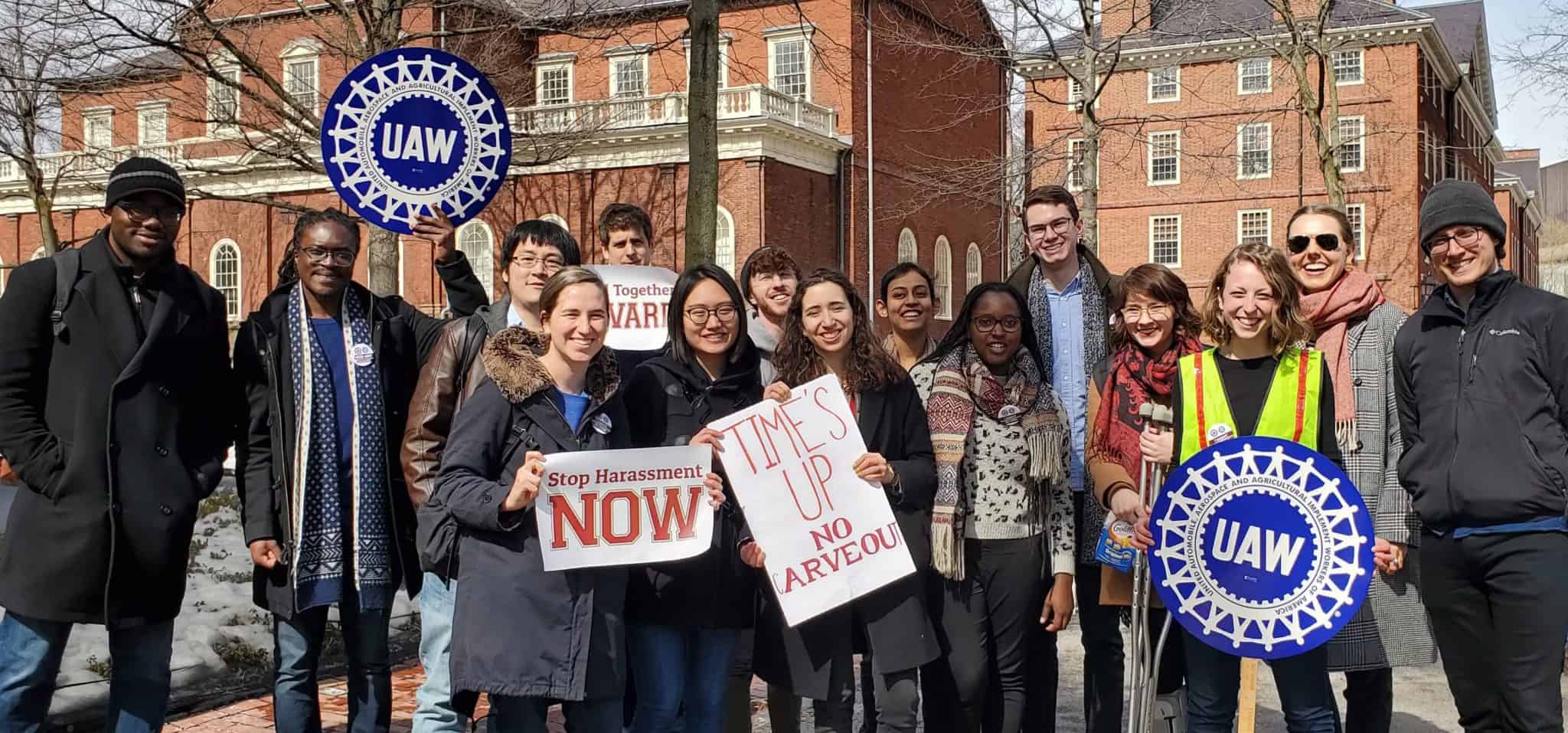On Tuesday, Harvard’s graduate student union announced that it will strike if the University fails to agree to what the union deems a fair contract agreement by December 3, the final day of classes for the fall semester. In an email to its members, the union explained that “The Bargaining Committee will continue to negotiate this month and will do all it can to avert a strike, but the administration must negotiate towards a fair agreement to avoid a strike.” University spokesperson Jonathan L. Swain characterized the union’s decision as “a choice to potentially disrupt the academic work of all Harvard students as they wrap up the semester, which is disappointing.” The union and the University will hold bargaining sessions on November 15, 22, and 26.
The Guardian attempts to explain why U.S. boardrooms are so white. Part of the explanation, according to the Guardian, has to do with cuts to federal jobs programs and education funding during the Reagan administration that erased gains in racial economic equality attributable to Johnson-era federal programs. Since the 1980s, not much has improved. In recent years, diversity at the upper echelons of the business and media industries has declined. The number of black Fortune 500 CEOs has decreased from seven, in 2004, to four, today; while African Americans held 9% of the New York Times newsroom jobs in 2015, in 2018 their percentage had dipped, slightly to 8%. The tech industry remains overwhelmingly white. While private companies, philanthropic organizations, and cities have pledged resources to promote workplace diversity, they operate in an adverse political climate. In 2017 55% of white Americans believed they were discriminated because of their race, and in 2018, hate crimes increased by 17% over the previous year. And the Supreme Court, according to the Guardian, seems, like many Americans, far too eager to believe that it inhabits a post-racial society.
Politico reports on California Governor Gavin Newsom’s increasingly complicated relationship with organized labor. Three of California’s most powerful unions seem to have split with the governor in recent months. The California Teachers Association has criticized Newsom for what it perceives to be concessions he has made to charter school organizations, and the California Federation of Teachers has denounced his veto of legislation expanding paid maternity leave for teachers. The California Nurses Association has criticized Newsom for backtracking on single-payer health care. And in October, the State Building and Construction Trades Council denounced the governor for vetoing proposals to increase funding for affordable housing construction and increase union wages for workers on certain publicly-funded projects. “This governor has added his voice to the chorus of politicians that disrespect the contribution of blue-collar workers,” said Robbie Hunter, president of the Construction Trades Council organization. Still, Newsome retains the support of the California Labor Federation, the state’s umbrella labor group, which credits the governor with protecting gig worker rights and combatting forced arbitration agreements.
The Washington Post reports that experts agree that the risk of a nation-wide economic recession has subsided in recent months. The Labor Department released data on Tuesday showing that the economy has more than 7 million job openings, 1.1 million more than the number of unemployed people. But within that data, the Post reports, are warnings: in the past year, the number of job openings in the country has fallen by 368,000. The manufacturing and agricultural industries, hit hard by tariffs, are contracting. While the national unemployment rate is low, unemployment in areas with manufacturing economies appears to be rising. In one in three U.S. counties, the unemployment rate has risen in the past year. Many of those counties, the Post points out, are in swing states like Michigan, Wisconsin, and New Hampshire.






Daily News & Commentary
Start your day with our roundup of the latest labor developments. See all
February 20
An analysis of the Board's decisions since regaining a quorum; 5th Circuit dissent criticizes Wright Line, Thryv.
February 19
Union membership increases slightly; Washington farmworker bill fails to make it out of committee; and unions in Argentina are on strike protesting President Milei’s labor reform bill.
February 18
A ruling against forced labor in CO prisons; business coalition lacks standing to challenge captive audience ban; labor unions to participate in rent strike in MN
February 17
San Francisco teachers’ strike ends; EEOC releases new guidance on telework; NFL must litigate discrimination and retaliation claims.
February 16
BLS releases jobs data; ILO hosts conference on child labor.
February 15
The Office of Personnel Management directs federal agencies to terminate their collective bargaining agreements, and Indian farmworkers engage in a one-day strike to protest a trade deal with the United States.